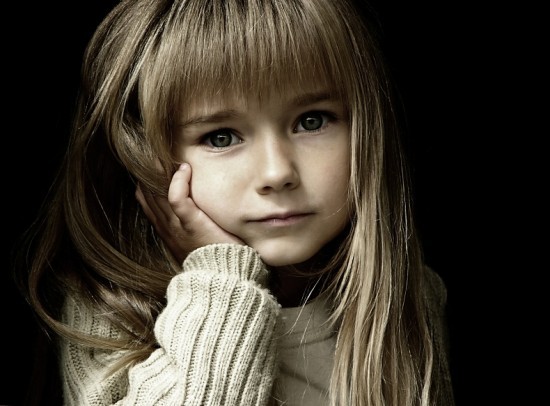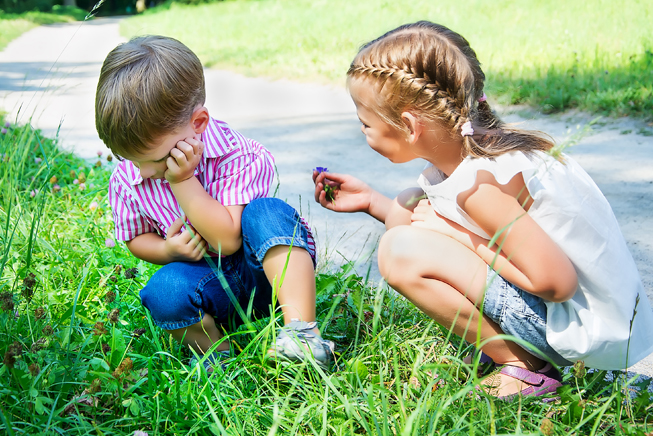The ability to apologize is one of the most important human skills that should be taught from childhood. Without it, one cannot imagine the development of a responsible, self-sufficient and adult personality. However, not all children can and, most importantly, wish to admit their mistakes. How to teach a child to apologize when it is really necessary and important for those around him?

Why do you need to teach children to apologize?
Children do not want to apologize for completely different reasons: one child does not recognize his guilt, another imitates parents, and the third - because of character. In addition, we forget that sometimes we teach children to be firm and give change to the offender. But here we pay little attention to such an important skill as the ability to bring a sincere apology.
However, the need to ask for forgiveness from the one who offended is not at all an empty formality. In children aged one and a half to two years, social relations are already established in the playground. Here, not only friendship and sympathy arise, but also the first clashes take place. It is important to teach the child to overcome conflicts with honor. Indeed, over the years, the number of contacts will only increase, and unfortunately, collisions cannot be avoided. So the ability to admit your mistakes and live in harmony with other people will be useful to a successful person in later life.
We teach children to apologize
It is important that the child understands: it’s not enough to ask for forgiveness for your misconduct, you must also bear responsibility for them. How to do this?

Part 1. Helping a child understand what an apology means
- Start at an early age. The importance of an apology can already be told to a two-year-old child. Of course, at first he won’t understand why he should say “I'm sorry” to another boy just because he took the toy he liked from him. But, as you know, repetition is the mother of learning.
- Explain what the correct apology suggests. Tell us that this apology consists of several parts and muttering “sorry” will not be enough. For example: “I'm sorry for knocking over your turret. I'm sorry, because it took you a long time to build it. Would you forgive me?"
- Tell us about the importance of voice and body language. How a person asks for forgiveness is sometimes as important as the apology itself. Explain that sarcastic tone, crossing fingers, drooping eyes indicate insincerity and can even hurt a person. You can say “I'm sorry I offended you” with a different mood and ask the kid which option he liked best.
- Watch for the seriousness of the apology. Some children easily say “sorry” to avoid lengthy notations or punishment.This means that the baby not only does not feel guilty for his misconduct, but also plainly has not yet learned anything but the pronunciation of the right words. A child of two years does not understand at all why the offended party is still pouting, although he has already "apologized." Try to explain the importance of a sincere apology, and older children recommend reading books with poems and fairy tales on this topic.
- Learn by example. All people make mistakes, and parents are not always right in relation to their own baby. If you make a mistake, be prepared to admit it, but refrain from long explanations. Try to be specific: “I'm sorry I screamed at you, dear. That was wrong. ” Your act will teach the child that everyone can make mistakes, but it is very important to apologize and move on. Do not be afraid to drop your authority, remember, being able to ask for forgiveness is a sign of maturity and wisdom!
Part 2. Teaching apologies to children 2-5 years old
- Focus on the rules of conduct. Most babies 2-3 years old do not understand the importance of apology and sympathy, as they are self-centered and focused on their own desires. The needs of other people are still obscure for them: think, I took the machine from Misha! Instead of demanding an insincere apology from children, you need to focus on the rules that a child must follow in order to avoid future conflicts. For example: “do not beat other guys”, “share your toys with your brother”, etc.
- Explain the example of a child. It is easier for children of middle preschool age (3-5 years old) to explain the importance of a sincere apology, as they begin to understand causal relationships. Show the child, using his example, how a resentful person feels: “Imagine that your friend Dima hit you in kindergarten, but for some reason no one stood up for you. And Dima did not ask you for forgiveness. How would you feel? ” Such a “fitting” of emotions will allow the baby to understand how painful the boy was offended by him.
- Teach empathy. Teach your baby to sympathize with the affected comrade. Although he is also too small for empathy, you can still help him figure out the emotions of other people. “Look at Katya. She rubs the fingers you stepped on. She is very hurt, she even cries. Let's check if everything is okay with her. " So children begin to understand the connection between their actions and the reactions of other children.
- Tell us about the consequences. Apologies mean nothing if misbehavior continues. Sometimes parents pay too much attention to words, forcing the child to ask for forgiveness, but do not correct the bad behavior that causes problems. Warn him about the possible negative consequences of his misconduct: “If you continue to offend other guys in the playground, we will not come here. And even if we come, nobody will want to play with you. "Will you like it if your comrades stop talking to you?"
Part 3. Teaching apologies to children 5-7 years old
- Understand why it’s hard for a preschooler to apologize. Starting from the age of five, children already better understand what is good and what is bad. They develop sympathy, but this does not mean that asking for forgiveness will become easier for them. Yes, they are no longer so selfish, but they have other feelings - fear, embarrassment and unwillingness to lose face in front of others.
- Maintain neutrality. You must have often heard words such as “he did it!” or "he first started!" Explain to the children that since the conflict occurred, they both should regret it. Before asking for an apology, end the conflict by divorcing the children on different sides. Distract for a while that they calm down, acknowledge grievances and restore good friendships.
- Offer your help. To overcome fear or embarrassment in children, come to their rescue.Tell the other baby that you and your daughter (or son) are asking for forgiveness from him, this was not on purpose, and now your child will be more attentive. By the way, this is how you achieve several goals at once. Firstly, help apologize, and secondly, show how to do it. If the offense was serious, words alone are not enough. Let the culprit help to assemble the pyramid, build the same sand castle or draw a more beautiful picture.
- Encourage your children to apologize in their own way. It’s not necessary to apologize strictly according to the algorithm you have proposed. It’s easier for some children to just hug the one they offended or give a card with an apology. For the first time, try to be near the children to make sure that the action was successful and that all sides understood and forgave each other.
- Say you are proud of the child. If the kid apologized on his own, even feeling indignant or embarrassed because of the conflict, be sure to tell that you are proud of his adult act: “Recognition of one’s own mistake is a sign of courage and even wisdom. I am very happy and truly proud of you! ”
- Teach to forgive. Explain to the child that apologizing is just part of the process of reconciling with a friend or brother. For a real "healing" of relations, the offended person must "remove the charges" by saying: "Everything is in order" or "I forgive you." Show on your own example, forgiving the baby for his misconduct and not recalling his bad behavior in the future. Peace means peace!
We also read:
- 10 reasons for poor child behavior
- Why are children rude?
- 8 loyal ways to punish children. How to punish a child for disobedience
- 12 signs of a spoiled child
- 15 signs that you are too strict on the child
Raising a child’s ability to recognize their own wrongness and apologize for an unseemly act is one of the main tasks of wise parents. And you tell your baby why, when and with what words it is necessary to ask for forgiveness?








